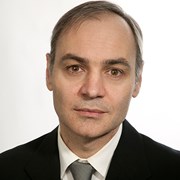This project focuses on induction charging for buses and high power inductive charging in particular. Similar to how one can put one's cellular phone on an induction board and having it charging immediately (compared to fiddling with cables, sockets, etc.), one can also charge buses using inductive charging momentaneously when they arrive at a bus stop. If so, the buses can be in charging mode before the bus has even stopped, and to the point when they drive on.
Result:
- Spitthoff, Lena; Vie, Preben Joakim Svela; Wahl, Markus Solberg; Wind, Julia; Burheim, Odne Stokke. Incremental capacity analysis (dQ/dV) as a tool for analysing the effect of ambient temperature and mechanical clamping on degradation. Journal of Electroanalytical Chemistry 2023 ;Volum 944. s. -
- Zhang, Baokun; Deng, Junjun; Wang, Wenbo; Li, Lantian; Wang, Zhenpo; Wang, Shuo; Guidi, Giuseppe. Multiobjective Thermal Optimization Based on Improved Analytical Thermal Models of a 30-kW IPT System for EVs. IEEE Transactions on Transportation Electrification 2022 ;Volum 9.(1) s. 1910-1926
- Deng, Junjun; Mao, Qianning; Wang, Wenbo; Li, Lantian; Wang, Zhenpo; Wang, Shuo; Guidi, Giuseppe. Frequency and Parameter Combined Tuning Method of LCC-LCC Compensated Resonant Converter with Wide Coupling Variation for EV Wireless Charger. IEEE Journal of Emerging and Selected Topics in Power Electronics 2021 ;Volum 10.(1) s. 956-968
- Zhang, Baokun; Deng, Junjun; Li, Lantian; Wang, Zhenpo; Wang, Shuo; Guidi, Giuseppe. Thermal analysis and design of a 30kW EV wireless charger with liquid-cooled shell for magnetic coupler and integrated power converter. I: 2021 IEEE Applied Power Electronics Conference and Exposition - APEC. IEEE 2021 ISBN 978-1-7281-8949-9. s. 426-431
The currently developed technology so far allows only for moderate charging power and this project aims to develop open knowledge for how high power inductive charging can be realised for buses.
If a bus charges 10-30 seconds extra per charging at 500 kW, these buses gain 30% more daily driving range, and the operators won't need extra buses. Thus this project contributes to cheaper bus service for everyone.
This project will contribute to the development and utilisation of technology for electrification of transportation systems with the purpose of reducing greenhouse gas emissions and local pollution. The Norwegian part of the project will include research activities within three main areas, including
- power system modelling, infrastructure planning and big data analysis for estimation of power requirements and load profiles for electric vehicle charging infrastructure.
- Development of design methodologies and control strategies for wireless power transfer systems that can enable efficient and flexible opportunity charging at high power levels.
- Evaluation of degradation mechanisms for batteries under cold climate conditions and parameter estimation for design of battery management systems.
The Norwegian research activities will be closely coordinated with the planned activities of the Chines partners. Successful results from the project will also form the basis for joint initiatives for obtaining external funding or support for large-scale demonstration of technology to be developed by the Chinese industry partners. The applications will enable significant personnel mobility by exchange stays of young researchers. A total of 4 joint workshops will be organised during the project (2 each in China and Norway) to support the coordination and integration of joint research activities among the Chinese and Norwegian partners. PhD students and postdoctoral fellows are expected to make use of well facilitated opportunities for scientifically relevant exchanges for 3-6 months.
Project leaders:
Odne Stokke Burheim, Norwegian University of Science and Technology
Junjun Deng, Beijing Institute of Technology
The project is organized in 3 Work Packages (WPs) on Norwegian side and 5 WPs on Chinese side
Norway:
- WP1 – Monitoring, information exchange system, and charging infrastructure – Olav Bjarte Fosso, NTNU and Bendik Torsæter, SINTEF
- WP2 – Wireless Charging System Guiseppe Guidi and John Are Suul both SINTEF
- WP3 – Battery modelling and measurements; Comparative investigation of NEVs policies Preben Vie and Jonsong Hua, both IFE
China:
- WP1 – Battery Technology for EVs – Lei Zhang, BIT
- WP2 – Terminal Device and Information Platform for EVs – Baoxuan An, BITNEI
- WP3 – Wireless Charging TechnologyLantian Li, QIZNET
- WP4 - Electric Bus Demonstration, BYD Europ E.V.
- WP5 - Electric Passenger Cars Demonstration, Heng Wang, Chary New Energy Auto
- WP6 - Policy Investigation of NEVs industry, Liu Di, Beijing CATARC Science and Technology Center Co.
This is a Knowledge-building Project for Industry partly financed by the Research Council of Norway
Keytech-NeVe-Chino project description in Chinese 更多有关KeyTech-NeVe-ChiNo项目介绍请点击 (PDF)

